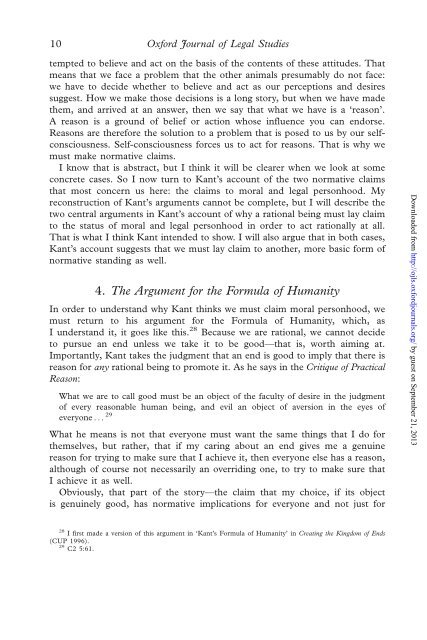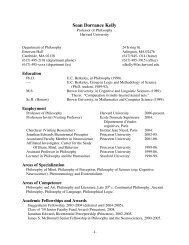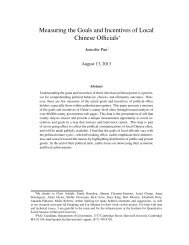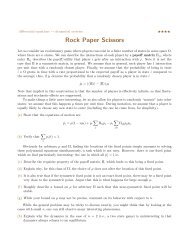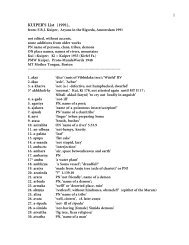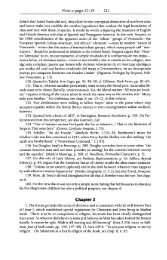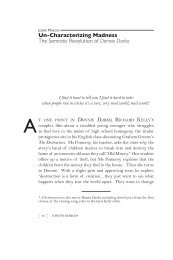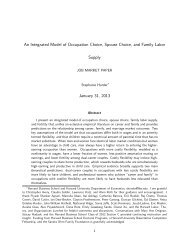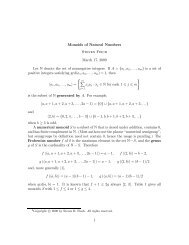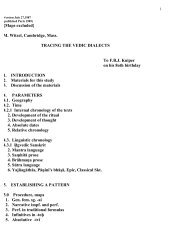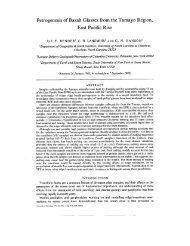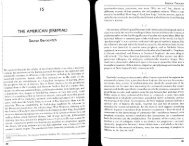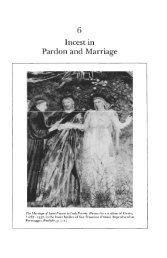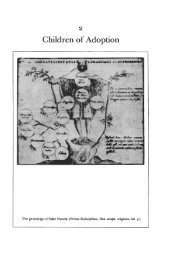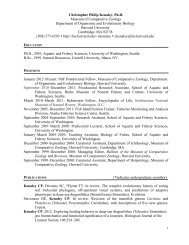Kantian Ethics, Animals, and the Law - People.fas.harvard.edu
Kantian Ethics, Animals, and the Law - People.fas.harvard.edu
Kantian Ethics, Animals, and the Law - People.fas.harvard.edu
You also want an ePaper? Increase the reach of your titles
YUMPU automatically turns print PDFs into web optimized ePapers that Google loves.
10 Oxford Journal of Legal Studies<br />
tempted to believe <strong>and</strong> act on <strong>the</strong> basis of <strong>the</strong> contents of <strong>the</strong>se attitudes. That<br />
means that we face a problem that <strong>the</strong> o<strong>the</strong>r animals presumably do not face:<br />
we have to decide whe<strong>the</strong>r to believe <strong>and</strong> act as our perceptions <strong>and</strong> desires<br />
suggest. How we make those decisions is a long story, but when we have made<br />
<strong>the</strong>m, <strong>and</strong> arrived at an answer, <strong>the</strong>n we say that what we have is a ‘reason’.<br />
A reason is a ground of belief or action whose influence you can endorse.<br />
Reasons are <strong>the</strong>refore <strong>the</strong> solution to a problem that is posed to us by our selfconsciousness.<br />
Self-consciousness forces us to act for reasons. That is why we<br />
must make normative claims.<br />
I know that is abstract, but I think it will be clearer when we look at some<br />
concrete cases. So I now turn to Kant’s account of <strong>the</strong> two normative claims<br />
that most concern us here: <strong>the</strong> claims to moral <strong>and</strong> legal personhood. My<br />
reconstruction of Kant’s arguments cannot be complete, but I will describe <strong>the</strong><br />
two central arguments in Kant’s account of why a rational being must lay claim<br />
to <strong>the</strong> status of moral <strong>and</strong> legal personhood in order to act rationally at all.<br />
That is what I think Kant intended to show. I will also argue that in both cases,<br />
Kant’s account suggests that we must lay claim to ano<strong>the</strong>r, more basic form of<br />
normative st<strong>and</strong>ing as well.<br />
4. The Argument for <strong>the</strong> Formula of Humanity<br />
In order to underst<strong>and</strong> why Kant thinks we must claim moral personhood, we<br />
must return to his argument for <strong>the</strong> Formula of Humanity, which, as<br />
I underst<strong>and</strong> it, it goes like this. 28 Because we are rational, we cannot decide<br />
to pursue an end unless we take it to be good—that is, worth aiming at.<br />
Importantly, Kant takes <strong>the</strong> judgment that an end is good to imply that <strong>the</strong>re is<br />
reason for any rational being to promote it. As he says in <strong>the</strong> Critique of Practical<br />
Reason:<br />
What we are to call good must be an object of <strong>the</strong> faculty of desire in <strong>the</strong> judgment<br />
of every reasonable human being, <strong>and</strong> evil an object of aversion in <strong>the</strong> eyes of<br />
everyone ... 29<br />
What he means is not that everyone must want <strong>the</strong> same things that I do for<br />
<strong>the</strong>mselves, but ra<strong>the</strong>r, that if my caring about an end gives me a genuine<br />
reason for trying to make sure that I achieve it, <strong>the</strong>n everyone else has a reason,<br />
although of course not necessarily an overriding one, to try to make sure that<br />
I achieve it as well.<br />
Obviously, that part of <strong>the</strong> story—<strong>the</strong> claim that my choice, if its object<br />
is genuinely good, has normative implications for everyone <strong>and</strong> not just for<br />
Downloaded from http://ojls.oxfordjournals.org/ by guest on September 21, 2013<br />
28 I first made a version of this argument in ‘Kant’s Formula of Humanity’ in Creating <strong>the</strong> Kingdom of Ends<br />
(CUP 1996).<br />
29 C2 5:61.


